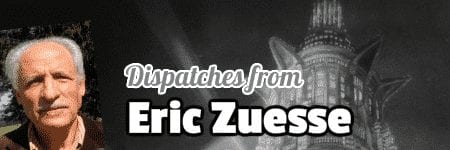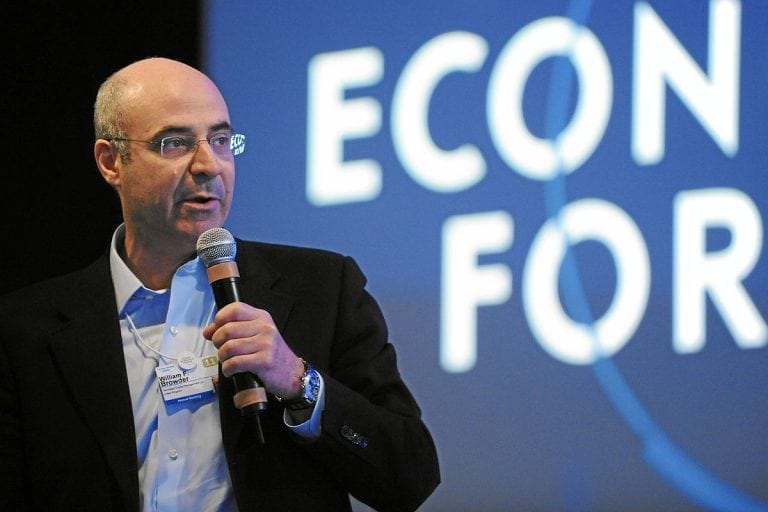A Scandal of The West’s News-Suppression, to ‘Justify’ U.S.-v.-Russia War
Read Gilbert Doctorow’s scathing essay on the Magnitsky Affair, as published on a Belgian website and largely ignored or suppressed by mainstream media in the West. Doctorow is the European Coordinator of The American Committee for East West Accord. His most recent book, Does Russia Have a Future? was published in August 2015.
orange button below.
[bg_collapse view=”button-orange” color=”#4a4949″ icon=”arrow” expand_text=”Click here to expand dossier” collapse_text=”Close dossier” ]
A film review: Andrei Nekrasov, ‘The Magnitsky Act. Behind the Scenes’ | At the end of the twists and turns in this expose, the viewer is ready to see Browder sink through the floor on a direct transfer to hell like Don Giovanni in the closing scene of Mozart’s opera
Despite all the threats of lawsuits and physical intimidation which William Browder brought to bear over the past couple of months to ensure that this film would not be screened anywhere, on Monday, 13 June, it was shown privately in a museum of journalism in Washington, D.C.No doubt, the courage of the museum’s directors gave heart to others, and now there is talk that the film will be shown publicly in Norway, where its production company is located, but where an attempt several weeks ago to enter it into a local festival for documentaries was rejected by the hosts for fear of law suits. Moreover, a Norwegian court has in the past week declined to hear the libel charges which Browder’s attorneys were seeking to bring against the film’s director and producers.In this brief essay, I will not go into the background issues of how the wealthy and influential investment banker William Browder has been moving heaven and earth to suppress it. I dealt with that issue in my account of the cancelled screening of the film in the European Parliament at the end of April where I was a member of the audience:
Instead, I will devote a few words to the film itself, which I have now seen privately.
The Magnitsky Act. Behind the Scenes is an amazing film which takes us through the thought processes, the evidence sorting of the well-known independent film maker Andrei Nekrasov as he approached an assignment that was at the outset meant to be one more public confirmation of the narrative Browder had sold to the US Congress and to the American and European political elites. That story was all about a 36 year old whistleblower “attorney” (actually a bookkeeper) named Sergei Magnitsky who denounced on Browder’s behalf the theft of Russian taxes to his boss’s companies amounting to $230 million and who was rewarded for his efforts by arrest, torture and murder in detainment by the officials who perpetrated the theft. This shocking tale drove legislation that was a major landmark in the descent of US-Russian relations under President Barack Obama to a level rivaling the worst days of the Cold War.
At the end of the film we understand that this story was concocted by William Browder to cover up his own criminal theft of the money in question, that Magnitsky was not a whistleblower, but on the contrary was likely an assistant and abettor to the fraud and theft that Browder organized, that he was not murdered by corrupt Russian police but died in prison from banal neglect of his medical condition.
The cinematic qualities of the film are evident. Nekrasov is highly experienced as a maker of documentaries enjoying a Europe-wide reputation. What sets this work apart from the “trade” is the honesty, the integrity of the film-maker as he discovers midway into his project that key assumptions of his script are faulty and begins an independent investigation to get at the truth.
It is an inconvenient truth that he stumbles upon, because it takes him out of his familiar milieu of ‘creative people’ who are instinctively critical of the Putin regime and of its widely assumed violation of human rights and civil liberties. We see how well-known names in the European Parliament, in the Parliamentary Assembly of the Council of Europe, in NGOs that are reputed to be watchdogs, in the team of court investigators in New York have taken on faith the arguments and documentation (largely in Russian and inaccessible to them) which they received from William Browder and then rubber-stamped his story as validated without making any attempt to weigh the evidence. Their intellectual laziness and complacency is captured fully on film and requires no commentary by the director. One of those especially skewered by her own words is German Bundestag deputy (Greens) Marieluise Beck. It is understandable to me now that I have viewed the film why she was one of the two individuals whose objections to its showing scuttled the screening in the European Parliament in April. By the end of The Magnitsky Act, Nekrasov finds that he has become a dissident in his own subculture within Russia and in European liberal circles.
Another exceptional and striking characteristic of the filmmaker is his energetic pursuit of all imaginable leads in his investigative reporting. Some leads end in “no comment” while others result in exposing whole new ranges of lies and deception in the Browder narrative. Nekrasov’s diligence is exemplary even as he takes us into the more arcane aspects of the case such as the course of money flow from the alleged tax fraud. These bits and pieces are essential to his methodology and justify the length of the movie, which approaches two hours.
Nekrasov largely allows William Browder to self-destruct under the weight of his own lies and the contradictions in his story-telling at various times. His camera is always running, even if his subjects are not thinking about the consequences of being taped. Browder’s supposed lapses of memory, set in the context of involuntary facial expressions of stress and nervousness, will be used against him by the viewer even if they would be thrown out by a judge in a court of law.
At the end of the twists and turns in this expose, the viewer is ready to see Browder sink through the floor on a direct transfer to hell like Don Giovanni in the closing scene of Mozart’s opera. Nothing so colorful occurs, but it is hard to see how Browder can survive the onslaught of this film if and when it gets wide public viewing.
© Gilbert Doctorow, 2016
[/bg_collapse]
ERIC ZUESSE, Senior Contributing Editor Investigative historian Eric Zuesse is the author, most recently, of They’re Not Even Close: The Democratic vs. Republican Economic Records, 1910-2010, and of CHRIST’S VENTRILOQUISTS: The Event that Created Christianity. Besides TGP, his reports and historical analyses are published on many leading current events and political sites, including The Saker, Huffpost, Oped News, and others.
![]()
What will it take to bring America to live according to its own self image?
[premium_newsticker id=”154171″]





